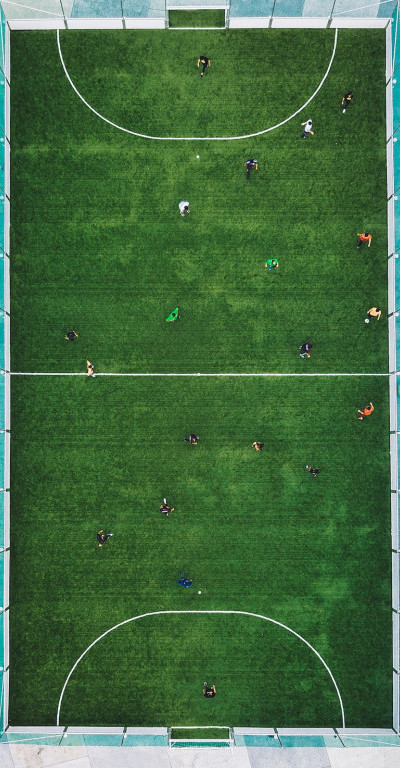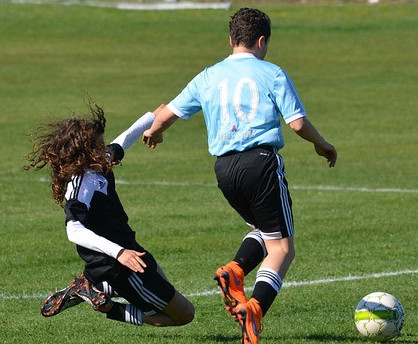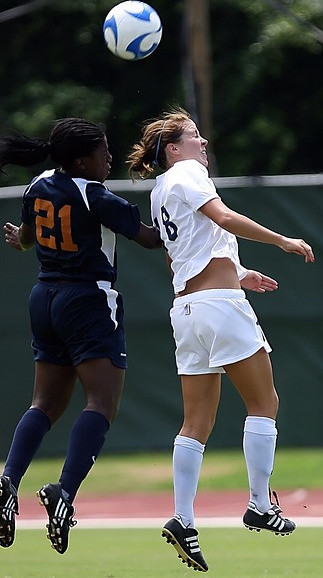Not saying that all the other players are not important in a soccer match, the defender or the defense team is the one that protects the goal keeper to avoid the opposition team to score goals. A strong defensive unit can single-handed alter the outcome of the match.
How does one became a good defender???
Speed strength, endurance, skill, technique, mental toughness, team play and tactical awareness are all important qualities when thinking about the best football players.

In this article we will explore various defensive soccer skill and drills that help players enhance their abilities, improve their abilities, improve decision-making and become formidable defender on the field.
Let’s go along and see what these skills and drills are.
Physical attributes for defenders
Defenders need to pocess specific physical attributes that enhance their performance on the field.
Firstly, speed and agility are essential to keep up with the fast-paced attackers and make timely interceptions. Regular sprint training, ladder drills and cone exercises can significantly improve a defender`s speed and agility.
What is agility??
It is a complex quality and in recognizing this, it has been noted that agility permits an athlete to react to stimulus, start quickly and efficiently, move in the correct direction, and be ready to change direction or stop quickly to make a play fast smooth, efficient and reputable manner.
Can agility be improved through neuromascular training?
Higher levels cognitive processing skills appear to be essential for performance.
Training the neuromascular control of movements may manifest as changes to the mechanics of the muscles, tendon complex, better neuronal drive, better decision-making of better muscle coordination
Regular sprint training, agility ladder drills and cone exercises can significantly improve a defender`s speed and agility.
Second, in order to defeat opponents physically, strength and endurance are essential. Strength and endurance can be improved by include interval jogging, body weight exercises, and weight training in the defenders’ fitness regimen. This will allow them to hold their ground and out muscle opponents.
Endurance in soccer can be defined as the ability or strength to last despite fatigue, stress or other adverse conditions. One of the most crucial physical qualities a soccer defender must possess is endurance. In the course of 90 minutes ( and sometimes 30 minutes of added playtime) a professional defender travels a distance of ten to fourteen kilometers on average.
Finally, defensive players need to have strong coordination and balance. A defender’s stability and general body control can be improved by balance drills like single-leg stands, stability ball training, coordination drills like ladder footwork drills, and cone slalom workouts.
Positional Awareness
An acute sense of spatial awareness is required of a defender. Without it, opponents can outmaneuver even the most talented players. Concentrate on game analysis, comprehending attacker movement, and foreseeing their moves to increase your positioning sense.
Exercises like shadow marking, in which you pursue an assailant without making physical contact, can improve your ability to maintain suitable defensive stances.
Tactical awareness and decision-making
Defensive soccer skills go beyond physical attributes and extend to the tactical awareness and decision-making abilities.
Soccer tactical awareness is completely related to where the ball is placed, moved, passed, possessed and controlled. Without the right instruction, it may be quite challenging for someone to learn this part of soccer.
Unlike skill, which can be developed independently by an individual, tactical awareness can only be gained through observation and coaching.
The fact that each coach has a unique coaching style presents another difficulty. Today`s football players must be able to adjust to various tactical formations that the coach may devise.
While some coaches are recognized for playing in a more offensive manner, others favour a more defensive approach. The development of tactical awareness comes through practice and watching professional matches.
Here are few key aspects to focus on ;
a) Positioning

For defenders, knowing how to position yourself properly is crucial. Maintaining a balanced formation, anticipating opponents’ moves, and positioning oneself to make tackles or intercept passes are all important. In order to prepare defenders for game circumstances, coaches can run drills that imitate those situations.
b) Communication
To maintain a coordinated defensive line, defenders must effectively communicate with one another. Defenders can better organize their back line, mark opponents, and close space by using verbal cues, hand signals, and frequent communication.
c) Reading the game
A successful defender can analyst the situation and foresee the opponent’s moves. Defenders can predictably intercept passes or block shots by observing the opponent’s routines, body language, and habits. Regular game simulations and film study sessions can enhance a defender’s ability to read the game well.
d) Making decisions
Defenders frequently find themselves in stressful situations when making rapid decisions is essential. They must choose whether to jockey, tackle, or delay the assailant. Defenders may hone their instincts and make wise decisions under duress by participating in drills that concentrate on decision-making in scenarios.
Technical skills for defenders
Defenders who thrive in their defensive responsibilities must have great technical capabilities.
The following are crucial abilities to develop:
a) Tackling

To disarm opponents cleanly and without fouling, defenders must use proper tackling methods. A defender’s capacity to win the ball can be enhanced with drills that place an emphasis on timing, body alignment, and tackle precision.
b) Heading

In order to clear perilous crosses and set-piece situations, defenders frequently rely on their heading skills. Regular heading practice with an emphasis on technique, timing, and accuracy can improve a defender’s ability to defend aerially.
c) Marking
Shadowing opponents, limiting their space, and remaining near to them without committing fouls are all aspects of effective marking. Defenders should engage in marking drills to hone their skills and ensure that their marking is perfect, protecting the custodian in the process
d) Distribution skills
A well- rounded defender should be adept at distributing the ball effectively and efficiently. Develop your passing skills, both short and long, to initiate attacks and start plays from the back. Work on your ball control, accuracy, and decision-making in passing drills like the possession game or the long range passing drill.
Take away
In conclusion, mastering defensive soccer skills is a continuous process that requires dedication and practice. By focusing on positional awareness, tackling technique, communication, aerial prowess and distribution skills, you can become a formidable defender on the pitch. Incorporating the provided drills into your training sessions will help you refine these essential skills and elevate your performance.
Remember, the journey to defensive excellence is on going, so keep pushing your limits, analyze your performance and continuously seek ways to improve. With perseverance and commitment, you will become an indispensable asset to any team`s defense.
If you have any questions or need clarification or help please leave them in the comment section below.
Happy training and excellence defense.
Here’s a little transparency: Our website contains affiliate links. This means if you click and make a purchase, we may receive a small commission. Don’t worry, there’s no extra cost to you. It’s a simple way you can support our mission to bring you quality content.
No Responses